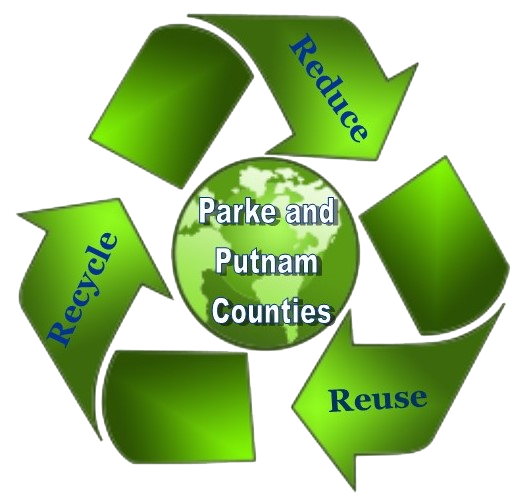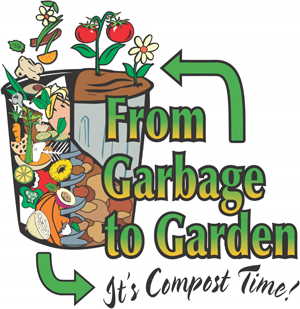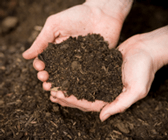Why should I compost?
If you compost you will...
- SAVE MONEY …on soil amendments, fertilizer and water.
- PRODUCE HEALTHIER PLANTS…by stimulating growth, improving disease resistance and drought tolerance.
- IMPROVE SOIL STRUCTURE…by creating lighter yet more absorbent soil.
- SAVE WATER…by improving water penetration (clay soils) and retention (sandy soils).
- REDUCE THE WASTE STREAM…by diverting materials often headed for the landfill.
How do I compost?
Hunt and Gather: Collect “brown” material (dried leaves, sticks, dried grass, straw, sawdust, newspaper) and “green” material (grass clippings, kitchen food scraps, yard trimmings, any other green plant debris) such that you have enough for a nice pile (at least 3’x3’x3’). Brown material (carbons) and green material (nitrogen) should be mixed at a ratio between 15:1 AND 30:1.
Microbes thrive best when their food source (your leaves and grass clippings) provides a carbon to nitrogen ratio (expressed C:N) is between 15:1 and 30:1 – meaning for every 15 to 30 parts carbon, 1 part of nitrogen must be added to the pile. The ratio of carbon to nitrogen is a chemical one and not based on volume; you do not need 30 times more brown material.
If the pile doesn’t “heat up” you will know there is not enough “green” (carbon) material adds some grass clippings.
Layer, Mix, Water and Cover: Layer your browns and greens. If the weather gets too dry, you may need to water your compost pile. A cover on the pile will help it to retain heat and water during the dry season and shield it from a drenching during the wet season. If the bin isn’t equipped with a cover, flattened cardboard boxes work well (and you’ve reused the cardboard) just lay the cardboard on top of the pile and water it down.
Turn, Turn, Turn: Temperature is the most accurate way to tell when to turn the pile. Normally within 24 to 48 hours, a new pile will reach temperatures of about 140 F and will sustain this temperature for several days. When the temperature drops below 120 F, turn the pile using a pitchfork, breaking any clumps and moving the outside parts to the inside. If the pile is too dry, this is a good time to water it again. Cover the pile again and wait. The temperature should peak again in a week or so.
How do I look? The easiest and best way to tell if your compost is finished is to take a look at it. The compost should be dark and crumbly, fresh-smelling, with very little of the original material identifiable. Other indicators include a relatively constant temperature (no more than 8 degrees above the ambient air temperature, even after turning the pile) and a pH close to 7 (neutral).
Compost is the single most important supplement you can give your garden soil.
Composting is a simple way to add nutrient-rich humus which fuels plant growth and restores vitality to depleted soil. It’s also free, easy to make and good for the environment.


